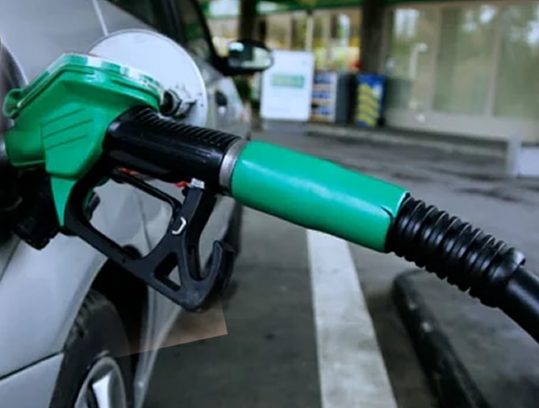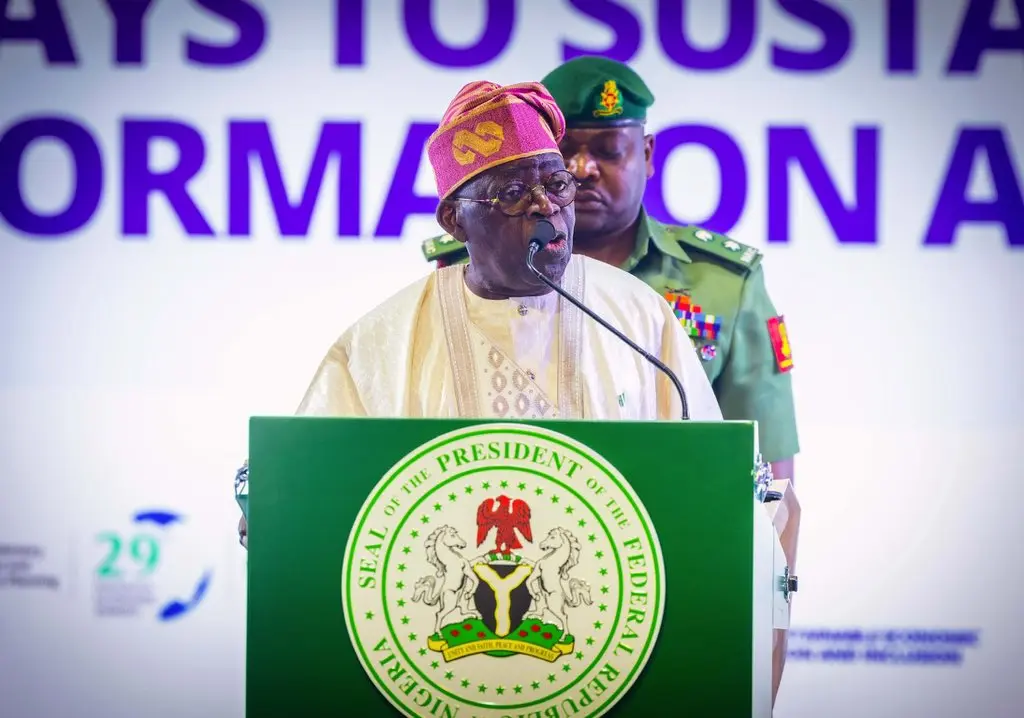Nigerians may soon pay nearly ₦1 trillion more each year for petrol as the Federal Government prepares to introduce a 15% import tariff on Premium Motor Spirit (PMS).
According to data from the Nigerian Midstream and Downstream Petroleum Regulatory Authority (NMDPRA), Nigeria imported an average of 26.75 million litres of petrol daily between January and September 2025. With the new 15% tariff — amounting to about ₦99.72 per litre — daily payments on petrol imports could reach ₦2.67 billion, translating to ₦973.6 billion annually.
This means consumers will likely face higher fuel prices once the policy takes effect.
Tinubu’s Approval and Government Justification
President Bola Tinubu approved the tariff following a proposal by Zacch Adedeji, Executive Chairman of the Federal Inland Revenue Service (FIRS). In a letter signed by Tinubu’s Private Secretary, Damilotun Aderemi, the President endorsed a 15% duty on the Cost, Insurance, and Freight (CIF) value of imported petrol and diesel.
Adedeji explained that the policy forms part of broader fiscal and energy reforms aimed at strengthening Nigeria’s oil sector, stabilising prices, and promoting local refining. He also advised that all tariff proceeds be remitted into a designated federal revenue account monitored by the NMDPRA.
He clarified that the measure is not primarily revenue-driven, but designed to align import costs with domestic realities and protect local refineries from unfair competition.
“The goal is to operationalise crude transactions in naira, strengthen refining capacity, and maintain a stable and affordable fuel supply,” Adedeji said.
The tariff is set to take effect after a 30-day transition period, ending November 21, 2025
Industry Concerns
Despite the government’s assurances, several industry stakeholders have voiced concerns over the timing and economic impact of the new policy.
The Independent Petroleum Marketers Association of Nigeria (IPMAN) said the move contradicts the principles of a deregulated market. According to Chinedu Ukadike, IPMAN’s National Publicity Secretary, the tariff could disrupt competition and hurt private importers.
“Once the market is liberalised, favouring one section over another goes against deregulation,” Ukadike said. “The government should focus on supporting local refiners instead of imposing tariffs.”
He warned that higher fuel prices could worsen inflation, especially during the festive season when petrol demand typically rises.
“Any addition in pricing will lead to inflation. The government must ensure steady supply and local refining before implementing such policies,” he added.
Economic Analysts React
Energy analyst Jeremiah Olatide, CEO of PetroleumPrice.ng, described the tariff as a “double-edged policy” — one that could increase government revenue but deepen economic hardship for Nigerians.
“It’s a smart revenue move, but the timing is wrong. People are still adjusting to fuel prices at ₦800–₦900 per litre after subsidy removal,” Olatide said.
He warned that combining the 15% import duty with other planned surcharges could push fuel prices even higher and intensify inflation.
“Multiple taxes will only burden consumers further. The government should instead promote naira-for-crude deals and stabilise local refining,” he advised.
Calls for Refinery Readiness
The Petroleum Products Retail Outlets Owners Association of Nigeria (PETROAN) also urged the government to ensure that Nigeria’s refineries become fully operational before the end of the year to avoid fuel scarcity.
PETROAN President, Billy Gillis-Harry, acknowledged that the tariff could help protect local refineries but warned that poor implementation might cripple imports and cause job losses.
“NNPC must complete its refinery partnerships before December to avoid scarcity or price hikes during the Christmas period,” he said.
Read Also;
Petrol soars above N1,000/ltr as Tinubu okays 15% import tariff
Private Sector Support
Despite criticisms, the Centre for the Promotion of Private Enterprise (CPPE) backed the policy, describing it as a strategic move to revive local industries and promote self-sufficiency.
CPPE’s Director-General, Muda Yusuf, said Nigeria’s dependence on imports has weakened its economy for decades, and protectionist policies like this could help domestic industries grow.
“Strategic protectionism isn’t about closing borders; it’s about building local capacity to compete globally,” the organisation stated.
CPPE also urged the government to pair the tariff policy with low-interest financing, stable energy supply, infrastructure investment, and transparent regulation to ensure the benefits reach consumers and businesses alike.
In summary, while the 15% import tariff could strengthen Nigeria’s refining industry and boost revenue, many fear it will also raise fuel prices, increase inflation, and deepen economic pressure on citizens unless carefully implemented.




